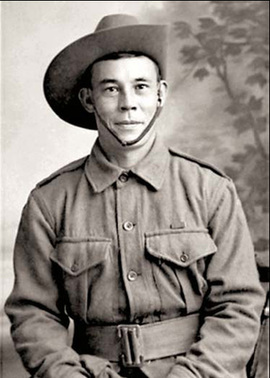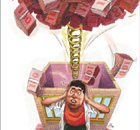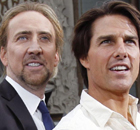Asia-Pacific
Anger at film's 'whitewash' of a Chinese war hero in Oz
(China Daily)
Updated: 2010-05-11 07:37
 |
Large Medium Small |
SYDNEY - A film about a Chinese-Australian war hero in which the lead role is played by a white actor has provoked anger in Australia at the "whitewashing" of the nation's history.
Billy Sing, whose father was Chinese and mother British, was a decorated soldier from the disastrous Gallipoli campaign of World War I during which he earned the name "The Assassin" for his success as a sniper.
 This studio portrait of war hero Billy Sing was taken in 1918 in Britain. GALE'S STUDIO LTD / COURTESY AUSTRALIAN WAR MEMORIAL VIA AFP |
"I'm very sorry to learn that somebody is trying to whitewash a Chinese-Australian face with a white face. It's a disgrace," said Tony Pang, president of the Chinese Australian Forum.
"To see this distortion of historical fact - it's sad."
Pang said Australia's Chinese community had been subjected to such treatment in decades gone by but that times had changed.
"The question I ask myself is what if (former prime minister) John Howard is being played by a Pakistani? It's ridiculous. It's just not appropriate."
Director Geoff Davis, who cast his son in the lead role, defended his decision to The Australian newspaper last week, saying he had been unable to find an actor to play Sing's Shanghai-born father.
The filmmaker said his aim was to "create a fictional story validated by having people perform true deeds, in the tradition of the historical novel".
But former National Party senator Bill O'Chee, whose father was Chinese and mother Irish-Australian, said he was "deeply disappointed".
"We'll now have people growing up thinking Billy Sing was white," he said.
Henry Makeham of the Australia-China Youth Association said the film was a lost opportunity to showcase the contribution of ethnic minorities to Australia's wartime history.
There was no shortage of Chinese-Australian actors who could have tackled the role, he added.
"It was essentially a whiting out of a Chinese-Australian hero," he told AFP.
Queensland-born Sing was an avid cricketer and kangaroo hunter before he enlisted with the 5th Light Horse Regiment.
He is credited with being the most successful and feared sniper in the Gallipoli campaign, having killed more than 200 enemy soldiers. He died in Australia in 1943.
Agence France-Presse






